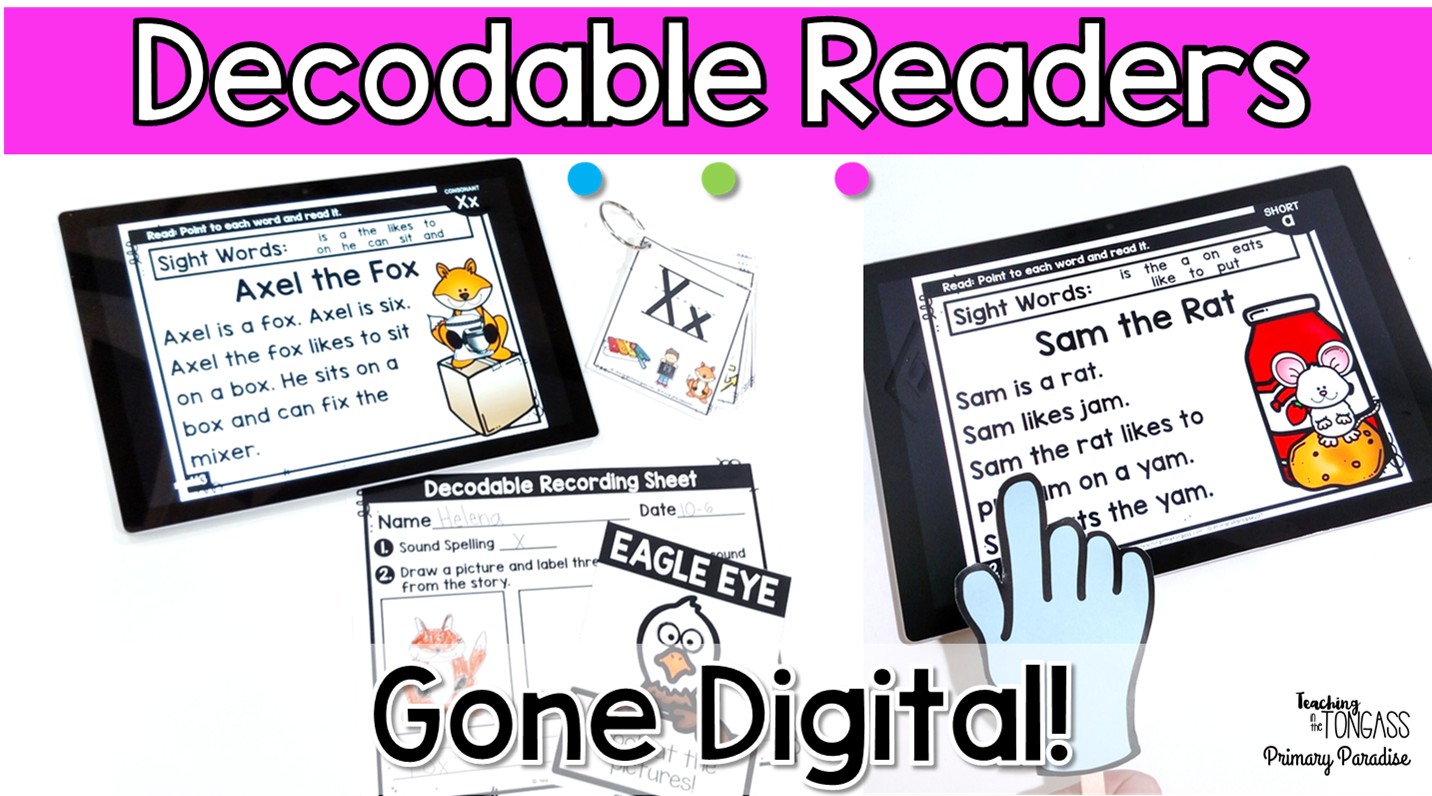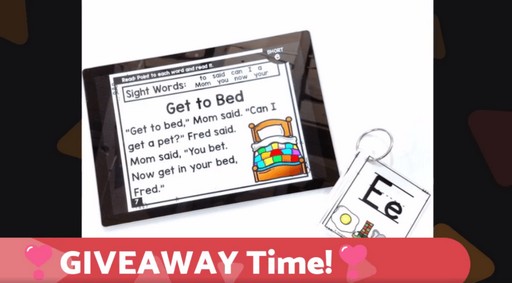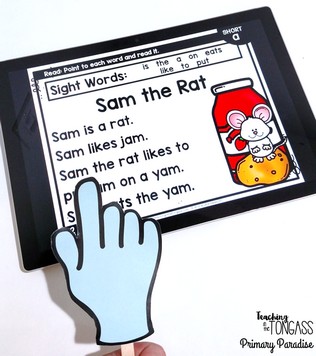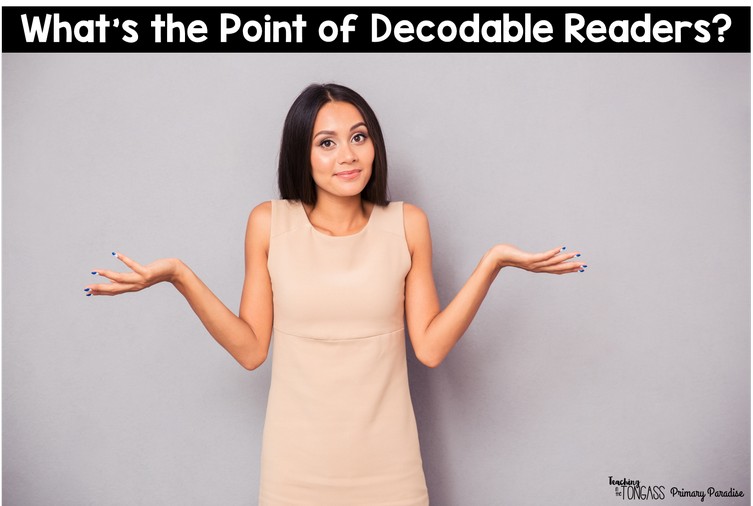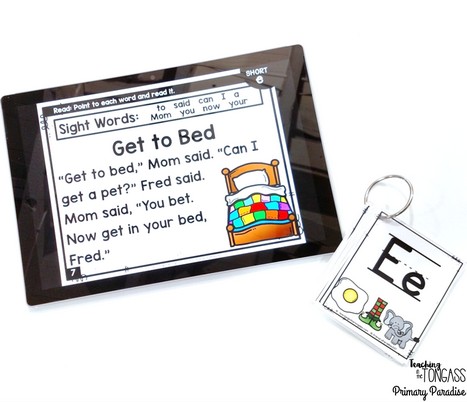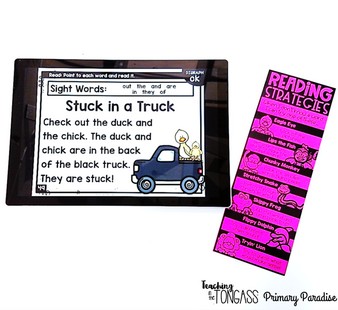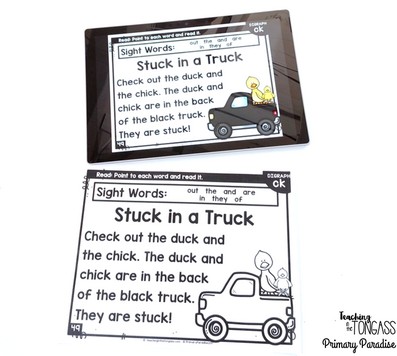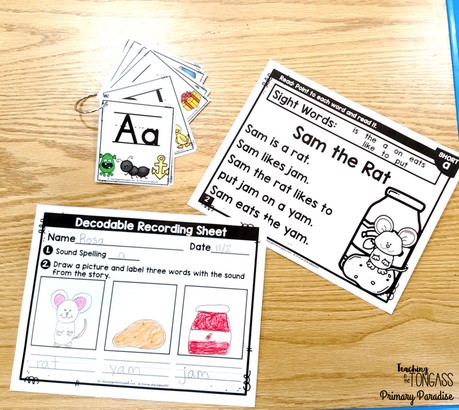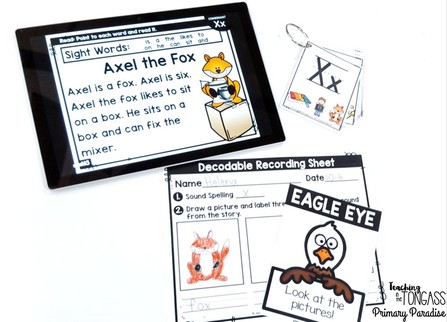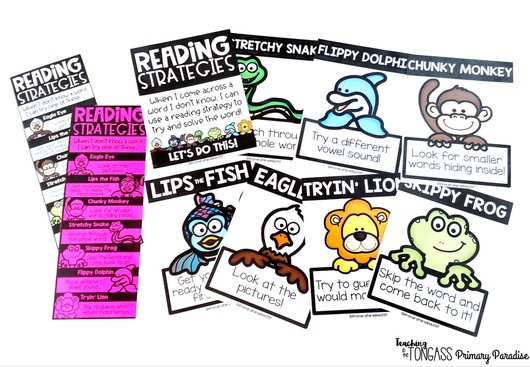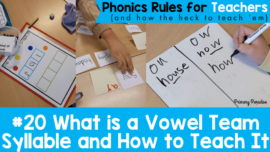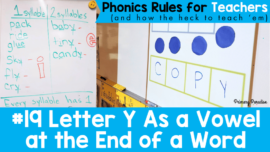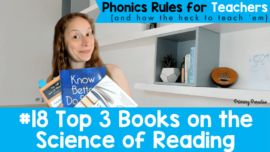Decodable Readers: If you thoroughly enjoy the printing, cutting, folding, stapling, prepping, storing, hunting for the one you need, and repeating all of the above when they go home with your students only to never return loop of frustration than you can just go ahead and skip this post. However, if you’re like the rest of us who loathe doing this with our 100+ decodable readers you need to teach each sound spelling combo to our students, than give me a few moments of your time. My teaching buddy, Jen from Teaching in the Tongass, and I are about to become your new BBFs.
Watch Our Facebook Live Video about this Topic Here.
Decodable Readers Gone Digital
You read that correctly, friend. Jen and I have taken the instructional goodness that is the decodable reader and stuffed it into a digital package with a proverbial bow on top.
What is the Point of Decodables?
Okay, I got a little ahead of myself. Let’s back up a bit and quickly talk about the point of decodables. (If you already know all this, than feel free to skip to the next section with deets about our new, digital decodables!)
Decodables are the perfect tool to help your students solidify and practice a particular phonics sound spelling that students have just learned. Decodable readers are created using only words using that sound spelling and sight words. The focus is on being able to sound out the word first, then to practice reading it fluently. The decodable focus is not on comprehension, but rather on building those fundamental reading skill. Decodables are typically silly and wouldn’t make much sense if you were reading them for comprehension.
Decodable texts are only a piece of the early literacy puzzle. They are also not meant to be “one and done.” Students read the same passage MULTIPLE times in an effort to practice a single sound. This helps them to develop confidence with that sound and allows them to then move on to finding and reading that sound in other text! In other words, decodables are the perfect stepping stone between learning a new sound and reading that sound “in the wild” in books and other stories.
Okay, So Why Digital?
When Jen approached me with the idea of going digital with decodables, I thought she was a genius. Why? Because, although decodables are a fantastic literacy learning tool, they’re also kind a of huge pain. If you’re using printable decodables, typically they’re little booklets that involve a lot of printer ink, copy paper, cutting, sorting, folding, and stapling. Then, there’s the problem of storing all of them, finding the ones you need when you need them, and lastly, the major frustration of sending them home for extra practice and never returning. OR returning ripped, missing pages, or with food (or goodness knows what else) spilled on them.
Digital decodables takes away all of the prep work, saves you ink and paper, and allows you to quickly and easily find the reader you want when you want it using our easy to use scope and sequence. It also allows you to easily differentiate at the small group table, AND (and this in my opinion is HUGE) quickly switch gears if you realize a particular sound is too easy/hard for a student. In other words, you’re welcome. 😉
But I Don’t have iPads in my Classroom
The best part of digital is that you can use whatever digital devices you have available! Any tablet, computer, laptop, cell phone! You could even project our decodables on your smartboard! You can the decodables through your google account and use them anywhere you’re teaching your students.
What If I Want Printable Versions?
We get it. Digital is wonderful, but you can’t send that home with students. And, we all know, sometimes technology becomes techNOlogy and decides not to work. Don’t worry, we’ve still got you covered! We’ve also provided you with printable black and white copy of each decodable that you can print to send home or give your students to practice! Since each story is on one page, that means no prep. Just print and go!
Okay, So How Many Decodables Are We Talking?
Jen and I create decodables for 130 sound spelling combinations that build in complexity. Each reader includes a visual picture cue right on the page as well! In addition, we’ve provided some bonus resources and a few free supplemental resources as well! Since these decodables were created by two primary teachers for primary teachers, we were able to collaborate in a way to really create a comprehensive resource that you will be able to use for years and years to come.
Find the bookmarks here and the posters here for free!
Decodables don’t have to be a ton of work. You can help your students practice targeted sound spellings with out the prep work with our digital decodables!
You can join my FREE Facebook Club for k-2 teachers here!
Find me on Instagram, Facebook, Twitter, and Pinterest!
